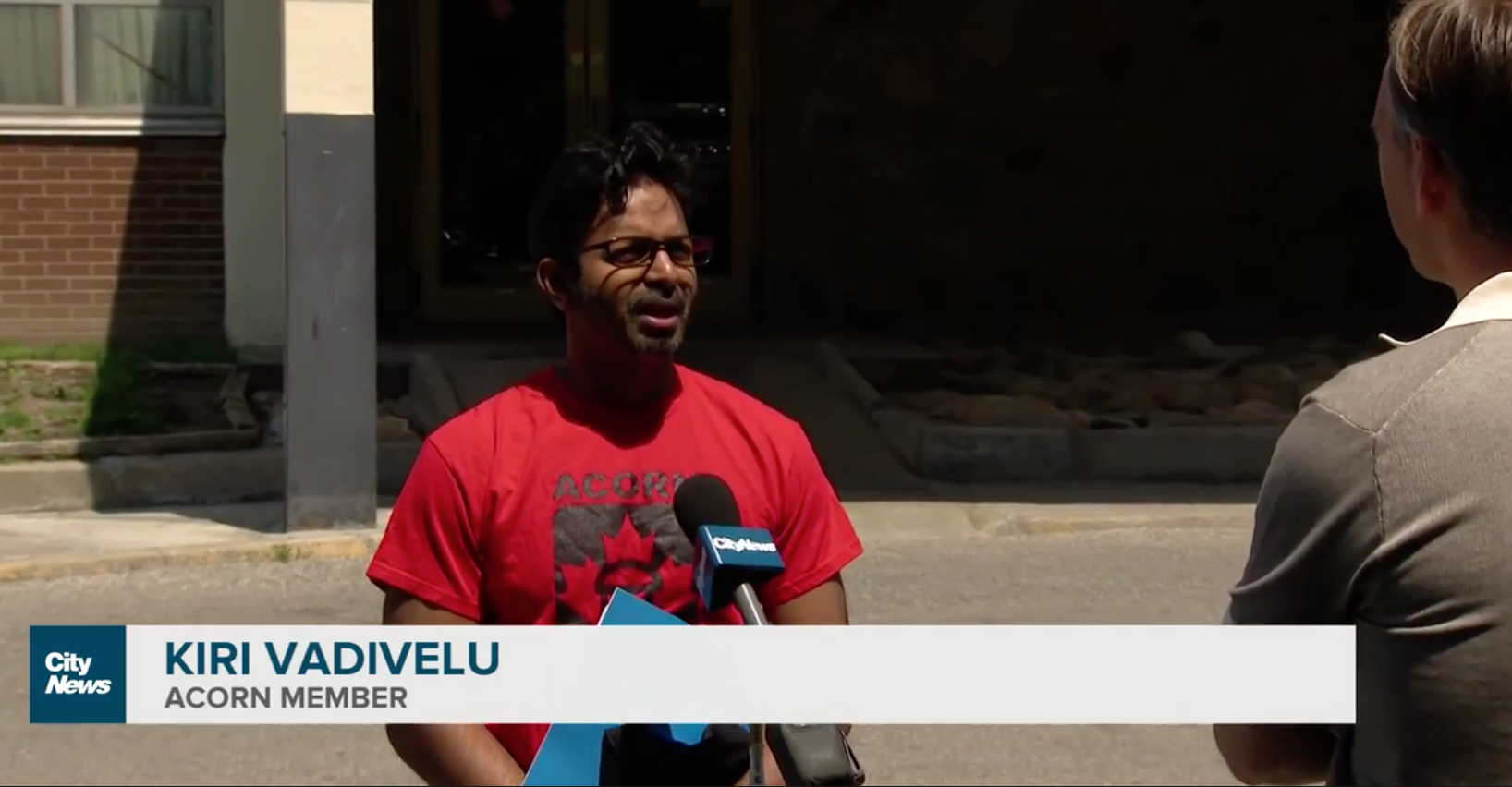
Excerpt from City News
The Toronto Rent Bank was originally a program that issued interest-free loans to low-income households. Still, during the COVID-19 pandemic, it was converted into a grant program for a one-year pilot.
Since the pilot project was launched last April, the city has doled out grants for either rental arrears or rental deposits to 1,744 households who were able to avoid eviction — an increase of 594 compared to 2020.
Toronto ACORN member Kiri Vadivelu said this program has been vital for keeping a roof over people’s heads.
“The last two years, we’ve seen several evictions that have gone through the Landlord and Tenant Board and how that could’ve been saved had there been even temporary relief to assist tenants,” he told CityNews.
The Planning and Housing Committee is considering making the Rent Bank into a permanent, grant-based program while also making some operational adjustments, including forgiving some or all of the loans previously issued.
According to city staff, funding for the Rent Bank in 2023 and subsequent years will include $1.9 million from the city funds and $3 million from the Provincial Homelessness Prevention Program, which was launched on April 1, 2022.
The grants for rental arrears are up to $4,000 or three months’ rent, whichever is the lower amount, while grants for rental deposits are broken down based on the size of the rental unit.
York South-Weston, Toronto Centre and Scarborough Centre were the areas where most grants were handed out.
Housing Secretariat Abigail Bond said the pilot allowed them to reach many more people.
“There’s no shortage of people having problems making rent in the city,” Bond says. “Based on the feedback that we got, we heard from people who are interested in taking on the grant or receiving assistance because of the level of financial uncertainty that’s been created by the pandemic.”
“We’ve made some other changes as well to reach as many people as possible and help maintain their housing stability which is so crucial to their recovery from the pandemic,” Bond added.
This included increasing the household income eligibility criteria by $15,000.
Bond says there will also be an opportunity to review the program if it continues.
“We’re looking to review that every year and just see if we can further expand access,” she explained. “We’ve seen a rise in the number of rent arrears that were seeing experienced by renters and so will just keep an eye on that and if necessary bring further reports back to council to expand the program if we need to.”
Vadivelu mentioned that having the program transferred from a loan program to a grant was very helpful in getting people off their feet.
“A lot of people are already at the bottom, especially the working class, and they have no means to get through,” said Vadivelu. “Most of us live paycheque to paycheque, and when this pandemic came, we were so unprepared.”
Vadivelu explained that it doesn’t solve the housing crisis that has been building in Toronto for the last 30 years.
“The real solution is to build affordable housing. It will take a long time to catch up with all that is missing but making this rent grant permanent is one step in the right direction to alleviate some pressure.”
The committee will vote on the recommendation to make the program permanent on Tuesday before going to the city council.